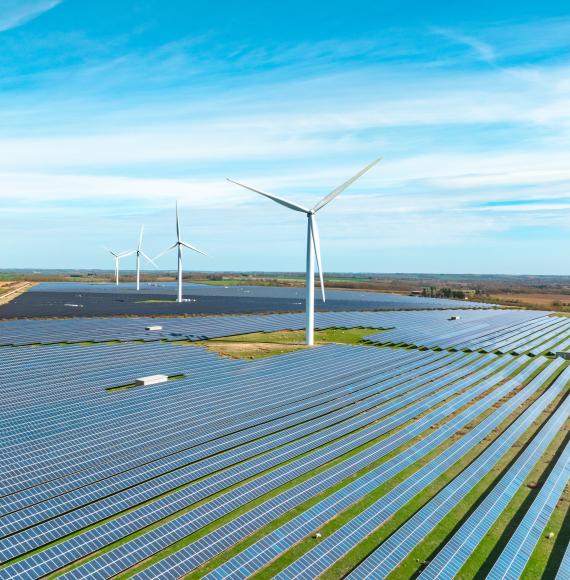The IT industry contributes between two and six per cent of total global greenhouse emissions. That might not sound too bad, but to add context, this figure is on par with the aviation industry. More concerning is that this figure has remained constant for several years – despite significant improvements in 'green' technologies and the hyperscale data centre providers all positioning themselves as carbon neutral and even targeting carbon-negative positions.
As the cloud continues to develop as the foundation of the IT industry, it's unsurprising that energy demand for data centres is roughly doubling every four years. The growth factor for cloud-based technology continues to be plus 50% year-on-year, and we don't see that stopping anytime soon. That should be good news as we fight the climate emergency, given data centres themselves are net-zero, but sadly it's not.
I think the problem all too often comes down to organisations thinking that migrating data to the cloud means they no longer contribute to greenhouse emissions. That's not the case. Whilst data is in the cloud, it may be carbon neutral - I won't argue with that. But how is that data used? How is it controlled, and when are people accessing it? Are they downloading it to interact with it? Or are they moving to it? These are questions that need to be considered because that's where the contribution to emissions comes from. To get on top of their emissions, organisations need to think about that end-to-end journey.
Win-wins
The good news is that several win-wins are available to public sector organisations if they get it right. The number one is saving money. That seems like the horse you would back every time, but there is a handicap attached. Cloud unit metrics undoubtedly look good versus holding it in a local data centre. It's greener too. The issue is down to the attractiveness of the cost and how easily scalable it is Organisations end up storing more data, creating more backups and so on, creating a soup through which they must navigate, adding time and cost in terms of energy and environmental impact, and more resource time to find files.
Organisations also need to think about where they will engage with those datasets and how they will manipulate them. Some significant steps are being made to remedy this, such as virtual desktops.
The second win-win is around optimising usage. You're going to be spending less because you haven't got nonsense sat in the cloud for no good reason. Think about your backup policies and all that archive data. By streamlining what's held, you're saving money. You're also encouraging more efficient, greener practices.

The third area is speed. Storing data in the cloud is one thing, but who exactly is using it and how? How easy is it to find documents, to navigate around etc.? The longer you're online, the higher the energy consumption. Download speed also needs to be considered, along with format, e.g. video uses more energy than audio or text.
If processes work faster, you've got much less lag, so you end up with more satisfied customers. Part of that is making sure you can navigate the volume of information that you've got. Have you recently tried to find a file through your SharePoint site? Because we tend to try and keep everything, and have multiple versions of files in various places, I guarantee it will be painful. I'm not saying we should go out and fix document management in one go but encouraging people to think about processes is the starting point. Why shouldn't we ditch the iterative versions of a document and save only the final version once it's complete? That kind of thinking reduces the volume of data, saves money and makes it easier to find, increasing speed, productivity and service delivery.
End-to-end thinking
There are other benefits from that end-to-end cloud thinking too. Security is a good example. If you're bringing people to the source of the data, you can control that access tightly and more simply than you can with end-user devices. We also need to be clear about necessary data. GDPR infosec requirements already encourage us to think about how we're using the data we've got, for example. We need to get away from just bolting on evermore data sets. Instead, we need to be more specific about the information that we need.
Reviewing the number of physical servers in use is another significant step. The scalability of the cloud is brilliant, but one of the challenges is that people will create test and development environments to give things a go. Processes get turned on, but they don't always get turned off. What you're looking for is a trend that sees the number of servers reducing.
Ultimately, the cloud can reduce the organisational impact on the environment, but only when the entire end-to-end journey is considered. It's not just about getting to the cloud; it's about how the shift to the cloud enables access to the data and services needed in a demonstrably green manner.
Nick Cobley, Managing Director for Cloud at Agilisys on why, despite advances in the energy efficiency of cloud data centres, simply migrating data to the cloud isn’t enough in the battle to fight climate change.



















